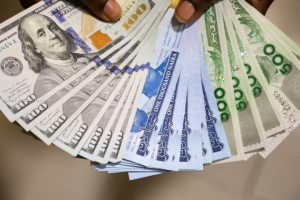
The global uncertainty caused by the COVID-19 pandemic has created a major challenge in balancing economic growth. This fact must have shaped The World Bank’s recent presentations on 2021 growth trajectory of some key Africans countries, including Nigeria. The bank stated that poor investment, low revenues among others would remarkably threaten Nigeria’s 2021 growth.
The financial institution also disclosed that economic activity would be dampened by low oil prices, OPEC quotas, falling public investments resulting from weak government revenues, constrained private investment due to shrinking financial base, and subdued foreign investors’ confidence.
This has led to the prediction that Nigeria’s growth is expected to reduce to 1.1 percent in 2021 following a -4.1 percent contraction towards the end 2020.
With the long-term impact of the pandemic, economic analysts have predicted that the speed, quality, and sustainability of Nigeria’s economic recovery can only be based on the effectiveness of the government’s response.
Nigeria is nonetheless awakened to the need for policy decisions that will shape the country and bring the economy out of the wreck caused by the global pandemic. In view of this, the government has commenced plans to tackle the issue of power from multiple points. There are plans to deliver and maintain 5 million new solar connections. This is through a ‘solar power strategy’. The strategy would also create 250,000 new jobs. Beneficiaries include 25 million Nigerians through the installation of 5 million solar-home systems and mini-grids.
Read also: 2021: How to Move the Economy Beyond Current COVID Challenges
According to the Rural Electrification Agency (REA), the solar power program is expected to generate about N7 billion ($18 million) besides increasing tax revenues per annum by $10 million in annual growth. This would be a remarkable push for the economy
Also, the government has begun extensive exploration of the country’s abundant natural gas resources. Africa’s biggest oil producer has the continent’s largest gas reserves of more than 184 trillion feet. The distribution of Compressed Natural Gas (CNG) as a key transport fuel will commence this 2021. This is part of the government’s strategy to gradually replace high-sulfur gasoline. The NNPC forecasts that there will be an increase in domestic demand for natural gas from current levels of 1.5 billion cubic feet per day (Bcf) to 7.4 Bcf by 2027. Effective handling of this alone can neutralize the fear of marginal growth in 2021.
Timipre Sylva, Minister of State for Petroleum Resources stated that autogas as an alternative to petrol will help with affordability as it is 40 percent cheaper. The Department of Petroleum Resources (DPR) had on September 9 ordered about 9,000 filling stations all over the country to commence the installation of facilities for gas products.
Sarki Auwalu, Director General of the Department of Petroleum Resources expressed optimism in the success of CNG. He stated that apart from autogas, the government was committed to exploring gas use in industries, for power generation, agriculture, and domestic use. He added that by 2022, Nigeria will become a net exporter of petroleum products because all these refineries under construction will come on-stream. We are looking at about 750,000BPD and that is excluding the four refineries owned by the government.
In the same vein, the agricultural sector has become the federal government’s major concentration. The crisis has brought about a shift from the failing oil sector to agriculture. The Federal Government disclosed intentions for the country to attain food sufficiency. Rice farmers, most especially, have been empowered to stop the import of rice and other products that can be locally produced in the country.
This will also contribute to the sustenance of the economy in 2021. Agriculture exports for the first 6 months of 2020 generated N204.45 billion, which is a sign that productivity is increasing in the sector to enable export growth.
The FG has launched a myriad of programs targeting especially the agricultural sector. The programs include the National Economic and Sustainability Plan, and the Presidential Fertilizer Initiative (PFI). The former, as part of its goal, intends to create new opportunities of cultivating about 20,000 to 100,000 hectares of farmlands quarterly, while the latter is investing N114 billion to improve the quality of fertilizers. The project also caters for the establishment of start-up livestock farmers through the $200 Million World Bank Livestock Productivity and Resilience Project (L-PRES).
The agricultural initiatives have recorded a breakthrough both in the country and across Africa. Nigeria moved from being the largest importer of rice to becoming the largest producer of rice in Africa in 2019. The average production volume has risen from 3million metric tons in 2017 to 8 million metric tons in 2019. With sustained investments by government, Nigeria has the potential to become the hub of agricultural exports in Africa and the world. The will rev up economic growth remarkably.
The government has already commenced effective policy requirements that will attract more investments and speedy growth in Nigeria. Other sectors developed by the government that would also contribute to the sustainability of the economy in 2021 includes the completion of some of the rail transportation projects, government empowerment of Small and Medium Enterprises (SMEs), the telecommunication industry which is expected to grow by at least 5.7%, among others.
Nonetheless, the government should not relent in its effort as the nation requires the sustenance of policies to create a stable economy. Marco Hernandez, World Bank Lead Economist for Nigeria opines that ‘this unprecedented crisis will require an unprecedented response from the entire Nigerian public sector, in collaboration with the private sector, to contain the outbreak, save lives, and protect livelihoods of the poor and vulnerable’.
Peace Omenka

